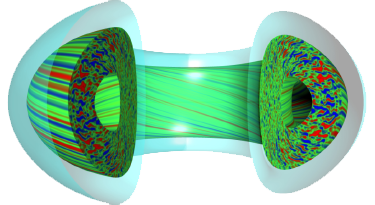Speaker
Description
MAST data has been “open” following UK Research Institute guidelines since the end of its 36 month embargo period, with all data now available. This data is available on request through a web interface and is built around maintaining control over who can access the data and for what purpose, in order to provide support to users making use of the data and ensuring it is used for valid research purposes. To achieve this, users need to register for each file from each shot in which they have an interest; a time-consuming process but one that helps maintain a knowledge of who has access to the data and ensure that appropriate credit is given in any publications.
While this was originally seen as being a model for making data open, the landscape has changed with the introduction of FAIR concepts, cloud computing and storage and the desire to maximise the impact of government funded research by making data more easily available to researchers within and outside the community. The paper presents the work currently undertaken in the adoption of FAIR principles for MAST data and making it available to a wider range of users through APIs which can be addressed programmatically. This includes the use to standard top level schemas, clear data licensing, integrating the Summary Interface Data Structure as scientific metadata and the use of persistent identifiers to make data more easily citable. Experiments with integrating the new open MAST data with the FAIR4Fusion Data Portal are described in addition to the open file formats adopted which make data accessible both by the community through IMAS and by providing tools to access data by non-fusion users.
| Country or International Organisation | United Kingdom |
|---|---|
| Affiliation | UKAEA |

